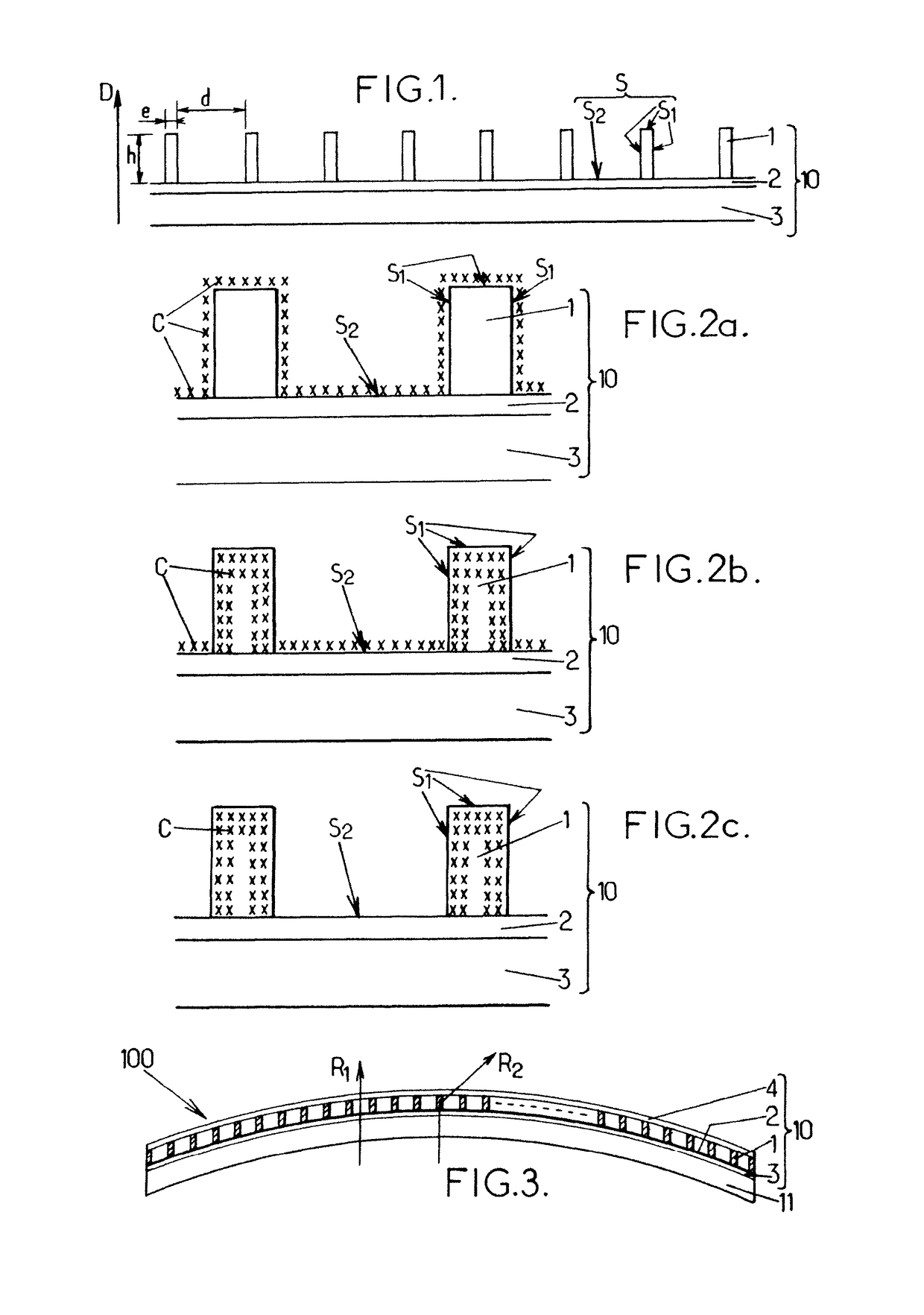Selective tinting method
a technology of selective tinting and substrate, applied in the direction of duplicating/marking methods, printing processes, coatings, etc., can solve the problems of inability to achieve the method, time-consuming steps of applying the mask onto the substrate and removing the mask, and incompatible with the target cos
- Summary
- Abstract
- Description
- Claims
- Application Information
AI Technical Summary
Benefits of technology
Problems solved by technology
Method used
Image
Examples
Embodiment Construction
[0037]The invention is now described for illustrative purpose in the context of an ophthalmic application, but it is understood that it may be applied to other technical fields.
[0038]The invention is particularly suitable for tinting a component forming a substrate, when this component is initially transparent and must remain transparent after having been tinted. In the context of the invention, transparent component is understood to mean an optical component which allows a user positioned on one side of the component to see distinctly, through this component, objects positioned on another side and at a distance from the component. In other words, an image of an object is formed on the retina of the user by the light propagated over a first non-zero distance between the object and the transparent component, then passes through the transparent component and is propagated over a second non-zero distance between the transparent component and the user's eye. To this end, the diffusion a...
PUM
| Property | Measurement | Unit |
|---|---|---|
| temperature | aaaaa | aaaaa |
| thickness | aaaaa | aaaaa |
| thickness | aaaaa | aaaaa |
Abstract
Description
Claims
Application Information
 Login to View More
Login to View More - R&D
- Intellectual Property
- Life Sciences
- Materials
- Tech Scout
- Unparalleled Data Quality
- Higher Quality Content
- 60% Fewer Hallucinations
Browse by: Latest US Patents, China's latest patents, Technical Efficacy Thesaurus, Application Domain, Technology Topic, Popular Technical Reports.
© 2025 PatSnap. All rights reserved.Legal|Privacy policy|Modern Slavery Act Transparency Statement|Sitemap|About US| Contact US: help@patsnap.com


